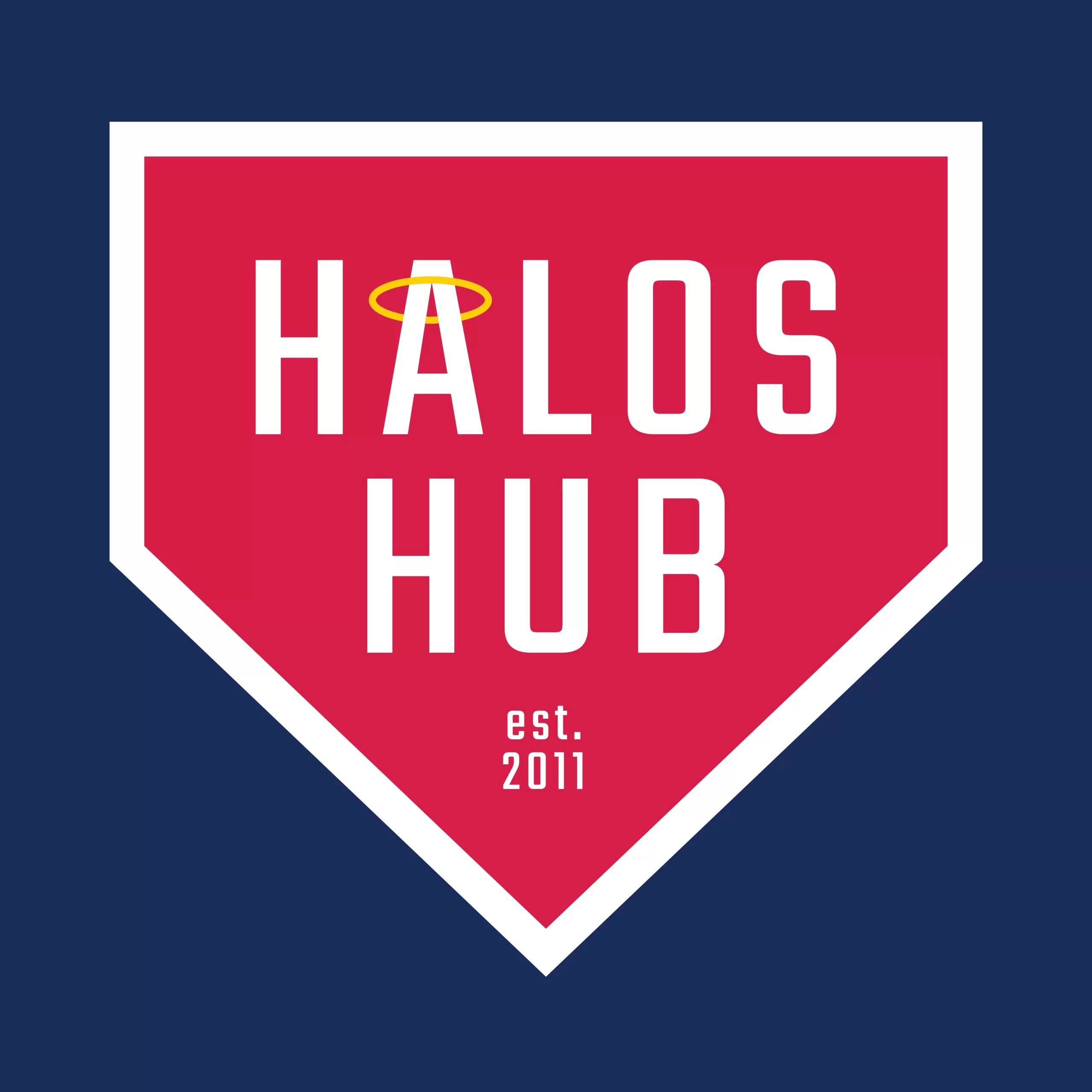Could the Angels’ best Shohei Ohtani trade have nothing to do with the players they get back?
Almost every trade projection involving Ohtani has carried an underlying assumption: If the Angels decide to trade away the once-in-a-lifetime two-way phenom, they’ll want premier talent in return.
Trading a unicorn like Ohtani would create a seismic, franchise-altering return, a fast track to a rebuild. It’s exceedingly rare that trading one player presents such an opportunity — and the standard return would be several good, young promising players with big futures and years of control.
But let’s conduct a thought exercise here. What if the Angels effectively give away Ohtani, but package him with Mike Trout and Anthony Rendon for lesser or minimal prospect return and in the process, clear about half their payroll and start with a clean slate ahead of free agency?
To be extremely clear: We are not saying this will happen, or that it’s even being discussed or considered. After all, the Angels just swept the Yankees and are actively looking for reasons to be deadline buyers. Add on the fact that both Trout and Rendon have full no-trade clauses, meaning they’d have to approve any swap. This is strictly theoretical.
But if it could be done, would it work? Would other teams want to do it?
On the surface, sure, taking on Trout, Rendon and Ohtani sounds like the easiest decision in the world. A team would gain four MVP awards, a World Series ring, two Rookies of the Year, 12 Silver Sluggers and a Comeback Player of Year award. What team wouldn’t want to add Ohtani without trading its best, or even any prospects? What team wouldn’t want to add Trout — the game’s best player over the past 11 years? Heck, even a healthy and fully engaged Rendon is probably better than most MLB third basemen.
That doesn’t reflect the full reality of the situation.
Wade past the star power and the big names, and the question becomes far more nuanced. Trout is set to make over $34.5 million a year through 2030. Rendon will earn over $38 million a season through 2026. The trio will make a combined $103 million this season. That’s more than eight teams are spending on their entire payroll, and the league average is just $161.5 million.
Even if a team could stomach the costs, the availability of both injured players — particularly Rendon — remains a legitimate question mark now and going forward.
Is there a team out there that would want two months of Ohtani so badly that they’d take on those contracts and all that uncertainty? It would instantly make it more difficult to re-sign him, given that they’d be saddled with paying the other two.
Still …
“It’s not the craziest thing I’ve heard,” said a National League evaluator, speaking on condition of anonymity because he’s not authorized to speak publicly on the topic. “If I’m the Angels, I want to separate those players out and see what I can get for them individually.
“I just think that the return for Ohtani, especially from a player perspective, would trump attaching Rendon’s underwater contract.”
Part of the evaluator’s thinking is that Trout, while possessing an expensive and lengthy contract, could still garner a good prospect return in any trade. So trading Ohtani and Trout simply for the purpose of ridding themselves of Rendon’s deal wouldn’t be prudent.
Ultimately it’s not fair to place Trout and Rendon in the same bucket. Trout has been a productive hitter this year and is a first-ballot Hall of Famer over his career. He remains a good defensive center fielder. Last season, Trout’s OPS was .999 and he finished eighth in MVP voting.
At the same time, teams would have legitimate reasons not to take on his contract. He’s battled more injuries over the past three years, missing most of 2021 with a calf strain. In 2022 he suffered a back injury. And this season he’s currently out with a broken hamate.

Trout has been sidelined since early July with the hand issue. (Orlando Ramirez / USA Today)
As Trout’s 32nd birthday approaches in August, his overall performance, while still strong, has dipped. His OPS this season is .862, and his swing-and-miss on fastballs the past two years has skyrocketed. Any team that takes on his contract would have to contextualize their expectations given his recent trends.
Rendon, on the other hand, has played just 200 games in his Angels career out of a possible 481. He’s had two season-ending injuries in 2021 and 2022. In 2023, he’s currently on his third IL stint of the season. He’s also been suspended twice.
When he has been on the field, the former All-Star and World Champion third baseman has not been productive. Rendon posted a .712 OPS in 2021, a .706 OPS last season and is working on a .678 OPS this year. He’s a below-average hitter. His eight errors in just 110 chances this season aren’t good either.
There’s no sugar-coating it: Rendon’s contract has been all-time bad, so far.
So is there a world where a less extreme, closer-to-reality version of this exists? It’s very unlikely Trout would ever be included in a trade of any kind. But if it’s Rendon and Ohtani, is that a viable middle ground? Package Ohtani and Rendon, but not Trout, with the Angels receiving better players in return. Or maybe the Angels agree to eat some of the contracts if the other team agrees to ship more impactful prospects. There are ways to maneuver it to make more sense for both teams.
Perhaps the greatest draw in acquiring Ohtani at the deadline would be the opportunity to get him in the building and subsequently convince him to stay. Re-signing him could be hard, though, for a team that just took on the money owed to Rendon and Trout, or even just to Rendon.
The gut reaction for every fan that follows the sport would likely be, “Well, what about the Mets? They’re spending more than $348 million in payroll this season. Money is no object.”
Beyond the Mets’ sub.-500 record making them poor candidates to see Ohtani as a final missing piece, their future financial flexibility might be more reputation than reality. Just last month, team owner Steve Cohen said in a press conference that he doesn’t “think it’s sustainable for the long term to be losing the type of money I’m losing. It’s a lot to ask.” The Mets already have about $250 million committed to 2024 contracts. Most of the other teams who would be considered suitable landing spots also have significant 2024 commitments, and adding Rendon plus Ohtani would cause luxury tax pain in many cases.
So part of the problem would likely be finding a viable trading partner.
But for the Angels, the incentives to go this route are clearer. They’d have a clean payroll, and freedom to craft a roster in free agency, with tons of flexibility to add. They might even be able to build a competitive roster without going over the luxury tax. Ideally, they’d be able to rebuild much faster.
At the end of the day, it’s highly unlikely any of this will happen. For all the speculation about trading Ohtani, the Angels seem fairly keen on retaining him and pursuing him in free agency. It’s even possible they’ll be deadline buyers depending on how the next week plays out.
But in this hypothetical world, would the Angels’ best trade deadline addition actually be a subtraction?
(Top photo of Ohtani, Trout and Rendon: Ashley Landis / AP Photo)


![[Michael Huntley] Angels manager Ron Washington on the trade deadline: “No matter who we have left, we will have O’Hoppe, Neto, Schanuel, Moniak. That core is going to be here. Mike (Trout), Rendon are going to be here and we are going to perform with whatever we have.” @SportingTrib #Angels [Michael Huntley] Angels manager Ron Washington on the trade deadline: “No matter who we have left, we will have O’Hoppe, Neto, Schanuel, Moniak. That core is going to be here. Mike (Trout), Rendon are going to be here and we are going to perform with whatever we have.” @SportingTrib #Angels](https://haloshub.com/wp-content/uploads/2023/07/minilogo.png)